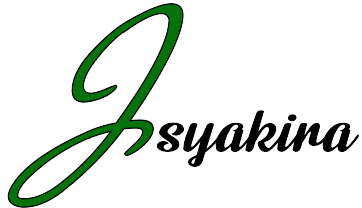Selecting the right web agency is a crucial decision for any business looking to enhance its online presence. In Lausanne, a city renowned for its vibrant business environment and innovation, finding a reliable web agency can be both exciting and daunting. This comprehensive guide aims to help you navigate the process of evaluating a web agency before signing a contract, ensuring that you make an informed decision that aligns with your business goals. formationdigitalmarketing offers flexible online learning options.
Understanding the Importance of a Web Agency
A web agency Artist Net Worth, or “agence web” in French, plays a pivotal role in the digital success of a business. They are responsible for designing, developing, and maintaining websites, as well as implementing digital marketing strategies. The right agency can help you reach your target audience, improve user experience, and ultimately drive more sales. Therefore, it’s essential to evaluate potential agencies thoroughly to ensure they can meet your specific needs.
Key Factors to Consider When Evaluating a Web Agency
1. Agency’s Portfolio and Case Studies
One of the first steps in evaluating a web agency is to review their portfolio and case studies. This will give you insight into their style, capabilities, and the types of projects they have successfully completed.
- Portfolio: Look for diversity in their projects. A good agence web should have experience working with various industries and types of websites, from e-commerce to corporate sites.
- Case Studies: These provide detailed accounts of their projects, including the challenges faced, solutions provided, and results achieved. Look for measurable outcomes like increased traffic, improved conversion rates, and enhanced user engagement.
2. Expertise and Services Offered
The range of services offered by an agence web is another critical factor to consider. Ensure that the agency provides all the services you need under one roof.
- Web Design and Development: Check if they offer both front-end and back-end development, responsive design, and custom solutions tailored to your business.
- SEO and Digital Marketing: An effective web agency should provide comprehensive SEO services to improve your site’s visibility on search engines, as well as digital marketing strategies to drive traffic and conversions.
- Content Creation: Quality content is vital for engaging your audience. Ensure the agency has experienced content creators who can produce compelling and relevant content for your site.
3. Client Reviews and Testimonials
Client feedback can provide valuable insights into the agency’s reliability and performance. Look for reviews and testimonials on their website, as well as third-party review sites.
- Positive Reviews: Consistent positive feedback is a good indicator of the agency’s professionalism and ability to deliver results.
- Negative Reviews: Pay attention to any recurring issues mentioned in negative reviews. This could be a red flag indicating potential problems you might face.
4. Communication and Project Management
Effective communication and project management are crucial for the success of any web development project. Evaluate how the agency handles these aspects.
- Communication Channels: Ensure the agency is accessible via multiple channels such as email, phone, and chat. Regular updates and prompt responses are essential for smooth collaboration.
- Project Management Tools: Ask about the tools they use to manage projects. Tools like Trello, Asana, or Basecamp can help streamline communication and keep the project on track.
5. Technical Expertise
The technical prowess of a web agency is a critical aspect to consider. Ensure the agency is up-to-date with the latest technologies and industry standards.
- Programming Languages and Frameworks: Check if they have expertise in the languages and frameworks relevant to your project, such as HTML, CSS, JavaScript, PHP, and CMS platforms like WordPress or Drupal.
- Security Practices: The agency should follow best practices for website security, including SSL implementation, regular updates, and secure coding practices.
6. Cost and Value
While cost is an important factor, it should not be the sole determinant. Focus on the value the agency can provide for your investment.
- Transparent Pricing: Ensure the agency provides a clear breakdown of costs, including any additional fees that may arise during the project.
- Value for Money: Consider the quality of services offered relative to the cost. A slightly higher investment in a reputable agence web can yield better long-term results than opting for a cheaper, less experienced agency.
Steps to Follow Before Signing the Contract
1. Define Your Goals and Requirements
Before approaching any web agency, clearly define your project goals and requirements. This will help you communicate your needs effectively and assess whether the agency can meet them.
- Project Scope: Outline the scope of your project, including the type of website, features, and functionalities you require.
- Budget: Set a realistic budget for your project. This will help you narrow down your options and find an agency that fits within your financial constraints.
- Timeline: Determine a timeline for the project, including key milestones and deadlines.
2. Shortlist Potential Agencies
Based on your goals and requirements, create a shortlist of potential agencies. Consider agencies that have a strong portfolio, positive client reviews, and offer the services you need.
- Research: Conduct thorough research to identify reputable agencies in Lausanne. Use search engines, social media, and industry directories to find potential candidates.
- Referrals: Ask for referrals from colleagues, business partners, or industry associations. Personal recommendations can provide valuable insights and help you find trustworthy agencies.
3. Schedule Consultations
Once you have a shortlist, schedule consultations with each agency. This will give you an opportunity to discuss your project in detail and evaluate their approach.
- Initial Meeting: During the initial meeting, provide an overview of your project and ask relevant questions to assess their expertise and fit for your needs.
- Follow-Up: Request a follow-up meeting to discuss any additional questions or concerns you may have. This will also help you gauge their responsiveness and commitment to client satisfaction.
4. Request Proposals
Ask each agency on your shortlist to provide a detailed proposal for your project. The proposal should include:
- Project Plan: A comprehensive project plan outlining the approach, timeline, and key milestones.
- Scope of Work: A detailed description of the services to be provided, including design, development, content creation, and ongoing maintenance.
- Cost Estimate: A clear breakdown of costs, including any additional fees or charges that may apply.
5. Evaluate Proposals
Carefully review each proposal to assess its alignment with your project goals and requirements. Consider the following factors:
- Clarity and Detail: Ensure the proposal is clear, detailed, and easy to understand. Vague or incomplete proposals may indicate a lack of professionalism or expertise.
- Customization: Look for proposals that are tailored to your specific needs, rather than generic templates. This shows that the agency has taken the time to understand your project and develop a customized solution.
- Value Proposition: Assess the value proposition of each proposal, including the quality of services offered and the expected outcomes.
6. Conduct Due Diligence
Before making a final decision, conduct due diligence to verify the agency’s credentials and reputation.
- Background Check: Perform a background check on the agency, including their history, track record, and any potential red flags.
- References: Ask for references from previous clients and contact them to get firsthand feedback on their experience with the agency.
- Legal Considerations: Review the agency’s terms and conditions, including any legal clauses related to intellectual property, confidentiality, and dispute resolution.
Red Flags to Watch Out For
1. Lack of Transparency
An agency that is not transparent about its processes, pricing, or capabilities is a red flag. Transparency is key to building trust and ensuring a smooth collaboration.
2. Poor Communication
If an agency is slow to respond or fails to communicate effectively during the initial stages, it’s likely that communication issues will persist throughout the project.
3. Overpromising and Under-Delivering
Beware of agencies that make unrealistic promises or guarantees. A reputable agence web will provide realistic expectations and deliver on their commitments.
4. Limited Portfolio
An agency with a limited or outdated portfolio may lack the experience and expertise needed to handle your project.
5. Negative Reviews
Consistently negative reviews or unresolved complaints are strong indicators of potential problems. Take client feedback seriously and consider it in your decision-making process.
Conclusion
Evaluating a web agency in Lausanne before signing the contract is a critical step in ensuring the success of your digital project. By considering factors such as the agency’s portfolio, expertise, client reviews, communication practices, technical skills, and value proposition, you can make an informed decision that aligns with your business goals.
Remember to define your goals and requirements clearly, shortlist potential agencies, schedule consultations, request detailed proposals, and conduct due diligence. By following these steps and being vigilant for red flags, you can choose a reliable agence web that will help you achieve your online objectives and drive your business forward.





